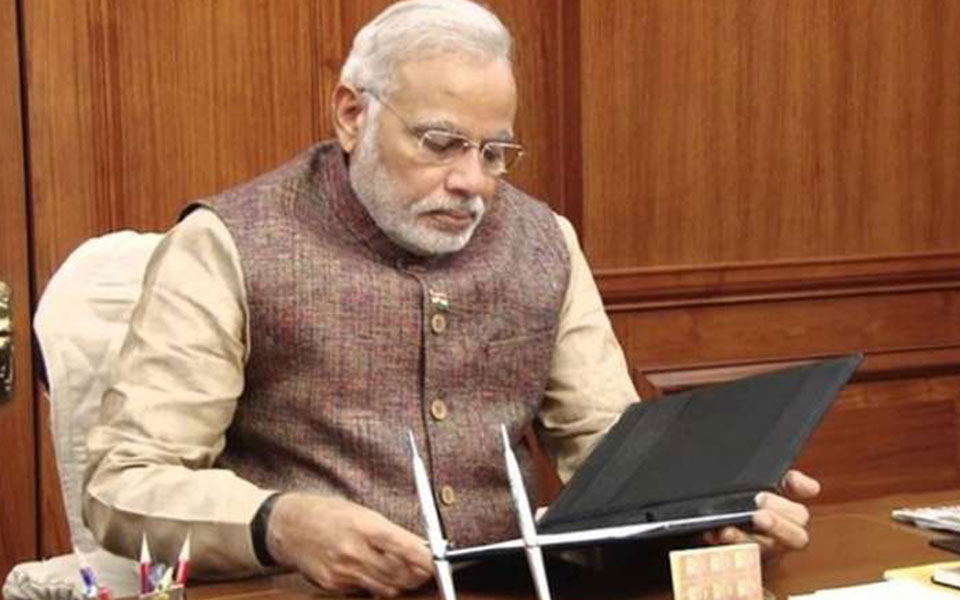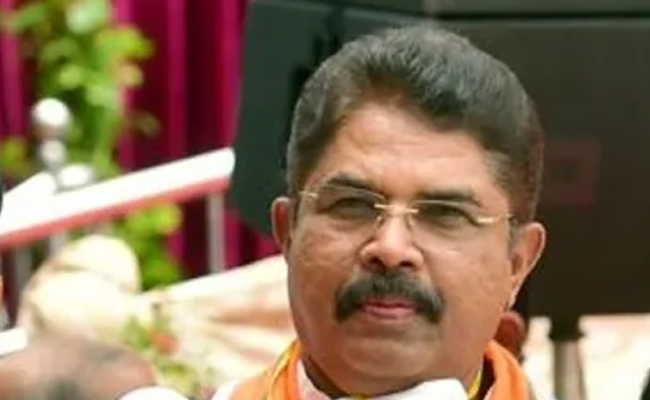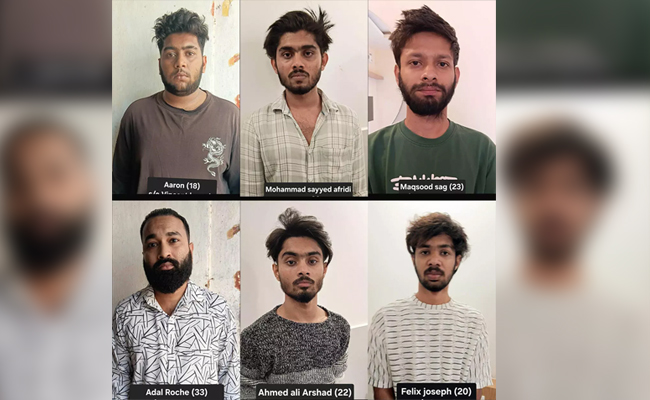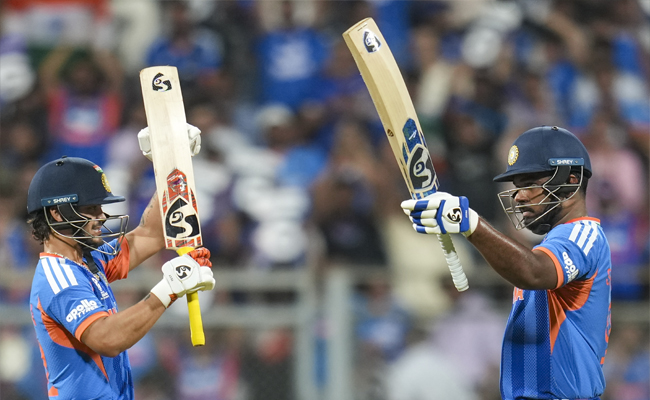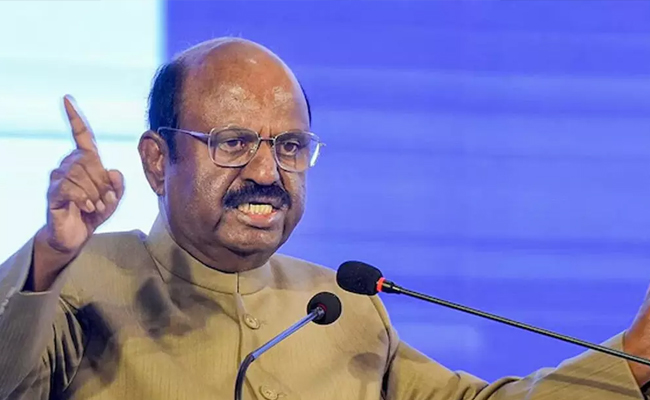New Delhi, June 13: As the NDA government enters its final year before the next Lok Sabha elections, Prime Minister Narendra Modi on Wednesday convened a meeting of his Council of Ministers wherein he is said to have tightened up the Ministers, according to informed sources.
Convened after a gap of more than three months, it was notably the first meeting of the Council of Ministers after the Bharatiya Janata Party (BJP) suffered a series of electoral defeats in various by-polls including on some key Lok Sabha seats in Uttar Pradesh such as Gorakhpur, Phulpur and Kairana.
In the recently held 11 by-elections (four Lok Sabha and seven assembly seats), the BJP suffered losses on eight seats including two Lok Sabha seats of Kairana in Uttar Pradesh and Bhandara-Gondiya in Maharashtra.
According to sources, the meeting assessed the work done in the past four years by the NDA government vis-a-vis implementation of various government schemes on the ground, and also discussed the roadmap to the 2019 elections and the Ministers have been asked to "work according to a calendar in an organised way".
The schemes whose implementation and effectiveness was reviewed included Pradhan Mantri Fasal Bima Yojana, Pradhan Mantri Ujjwala Yojana, Mudra Yojana, Pradhan Mantri Jan Aushadhi Yojana, and Ayushman Bharat among others.
The Prime Minister is said to have told his colleagues to be proactive with "taking the message of various government schemes and achievements in the last four years to the public".
They have also been asked to plug the loopholes, if any, in the working of their Ministries and departments.
In the last two years, the BJP has lost six Lok Sabha seats in bypolls and currently its tally stands at 273, just one above the halfway mark.
Let the Truth be known. If you read VB and like VB, please be a VB Supporter and Help us deliver the Truth to one and all.
Bengaluru (PTI): Leader of Opposition in the Karnataka Assembly R Ashoka on Thursday took a dig at CM Siddaramaiah ahead of the state Budget presentation, claiming that the government is expected to borrow Rs 1.15 lakh crore and is likely to impose fresh taxes on the people.
He said the Budget would have nothing new, adding that its highlights would be criticism of Prime Minister Narendra Modi and repeated mentions of the five guarantee schemes ('Shakti', 'Gruha Lakshmi', 'Gruha Jyoti, 'Yuva Nidhi' and 'Anna Bhagya').
Chief Minister Siddaramaiah, who also holds the Finance portfolio, is scheduled to present the 2026–27 Budget on March 6. This will be his record 17th budget.
“Siddaramaiah-led Congress government’s budget will be presented tomorrow. While Finance Minister Nirmala Sitharaman reduced the tax burden in the Union Budget, Siddaramaiah is known for imposing taxes on people. He imposes about four taxes a month and has already introduced 36 taxes, and is now looking for ways to impose more,” Ashoka said.
Speaking to reporters, he said the Congress had promised people before coming to power that the guarantee schemes would be implemented without imposing any burden on them.
“By the end of the chief minister’s term, the state’s total debt will probably exceed Rs 6 lakh crore. The government has already breached financial discipline. Siddaramaiah and his government are somehow managing the situation,” Ashoka claimed, adding that his borrowings as CM equal those of 12 or 13 former chief ministers combined.
Stating that the Budget should create higher revenue sources, ensure that no burden is placed on people, and take the state away from debt, the opposition leader said this could be ensured only by a “clever and intelligent finance minister.”
“Anyone can run a government by pushing the state into debt,” he said, accusing Siddaramaiah of “increasing the state’s debt and failing to meet the expectations of the people.”
Highlighting that Siddaramaiah blames the previous BJP government for everything, Ashoka said Basavaraj Bommai, the chief minister during the previous BJP government, had presented a “surplus budget,” without excessive borrowings.
“Despite having the opportunity to borrow more while staying within the parameters of financial discipline, he (Bommai) did not do so, as it would burden the people,” he said, accusing Siddaramaiah of borrowing crores of rupees every year.
“I feel that this time too, he will take a loan of Rs 1.15 lakh crore,” he claimed.
The BJP leader said he had written to the CM requesting an allocation of Rs 15,000 crore annually for the development of backward taluks, as recommended by the High Power Committee on Redressal of Regional Imbalance (HPCRRI), chaired by economist Prof M Govinda Rao.
Claiming that the government appears “inactive” due to internal rifts, Ashoka pointed to an ongoing power struggle between factions led by Siddaramaiah and Deputy Chief Minister D K Shivakumar over the CM’s post.
“Amid all this, we cannot expect anything new from this Budget. The CM will repeatedly speak about the guarantee schemes and target the central government and PM Modi. Criticising Modi and repeated mentions of the five guarantee schemes will be the highlight of this Budget. Other than that, there will be nothing new,” he added.
He also dismissed the CM's claim that the government had achieved 90 per cent of the promises made in the previous Budget. “The fact is that not even 9 per cent has been achieved. I have evidence for it,” he said.
Ashoka further alleged that the government had also failed in tax collection, achieving only 48 per cent of the target, and had released less than 40 per cent of the allocated funds to some departments.

